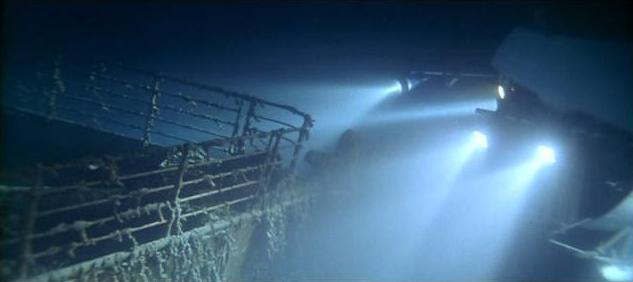
First Saw It:
December 28, 1997, at the United Artists Fairfax Towne Center in Fairfax, VA, with my dad
 |
Winner '97: First Saw It: |
Titanic December 28, 1997, at the United Artists Fairfax Towne Center in Fairfax, VA, with my dad | ||
|---|---|---|---|---|
| Bridesmaids: | As Good As It Gets, The Full Monty, Good Will Hunting, L.A. Confidential | |||
| My Vote: | L.A. Confidential, though I think Titanic ranks among Oscar's best winners | |||
| Overlooked: | The Sweet Hereafter, Boogie Nights, Oscar and Lucinda, Donnie Brasco |
 |
| Photo © 1997 20th Century Fox/Paramount Pictures |
| Academy Award Nominations and Winners: | |
| ★ | Best Picture |
| ★ | Best Director: James Cameron |
| Best Actress: Kate Winslet | |
| Best Supporting Actress: Gloria Stuart | |
| ★ | Best Cinematography: Russell Carpenter |
| ★ | Best Art Direction: Peter Lamont; Michael Ford |
| ★ | Best Costume Design: Deborah Lynn Scott |
| ★ | Best Film Editing: Conrad Buff IV, James Cameron, and Richard A. Harris |
| ★ | Best Original Score (Drama): James Horner |
| ★ | Best Original Song: "My Heart Will Go On" |
| ★ | Best Sound: Gary Rydstrom, Tom Johnson, Gary Summers, Mark Ulano |
| ★ | Best Sound Effects: Tom Bellfort & Christopher Boyes |
| ★ | Best Visual Effects: Robert Legato, Mark A. Lasoff, Thomas L. Fisher, and Michael Kanfer |
| Best Makeup: Tina Earnshaw, Greg Cannom, and Simon Thompson | |
| Golden Globe Nominations and Winners: | |
| ★ | Best Picture (Drama) |
| ★ | Best Director: James Cameron |
| Best Actress (Drama): Kate Winslet | |
| Best Actor (Drama): Leonardo DiCaprio | |
| Best Supporting Actress: Gloria Stuart | |
| Best Screenplay: James Cameron | |
| ★ | Best Original Score: James Horner |
| ★ | Best Original Song: "My Heart Will Go On" |
| Other Awards: | |
| Directors Guild of America: Best Director | |
| Producers Guild of America: Best Picture | |
| Screen Actors Guild Awards: Best Supporting Actress (Stuart; tie) | |
| Los Angeles Film Critics Association: Best Production Design | |
| National Board of Review: Special Achievement Award (Cameron) | |
| Satellite Awards: Best Picture (Drama); Best Director; Best Art Direction; Best Costume Design; Best Film Editing; Best Original Score; Best Original Song | |
| Permalink | Home | 1997 | ABC | Best Pics | Blog |